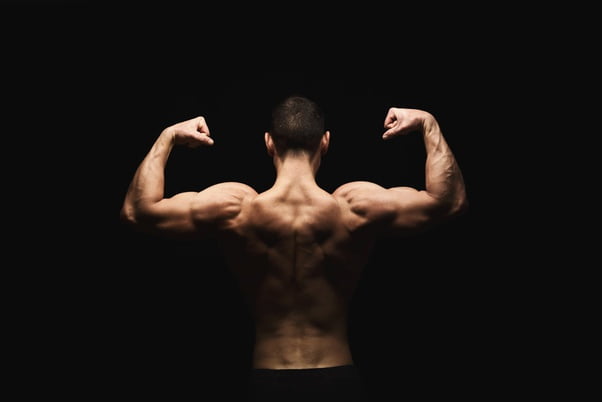I have some great news for you…
Rest assured my friend, that your muscle memory is not lost – no matter how long you have ceased to weight train. This is the case despite what age you are. There is a it of a fun science behind this that I’d like to explore.
Our muscle size is key to their nuclei. Nuclei controls protein synthesis. The more you have, the more protein you are able to turn into muscle. When you train, the first effect it has on your body, is increase nuclei, which over time, facilitates in the development of more tissue – building the particular muscle group.
The good news is that new nuclei that you’ve spent time building, are never lost. Resistant training induces permanent psychological changes to your muscle fibres.
When you actually begin to resume your training, muscles are able to grow rapidly in size, because the initial beginners stage of building nuclei is skipped, and once you start lifting weight again, they begin to ‘wake up from their slumber’ synthesising protein almost instantly.
Another run of good news is that because you are already in shape from previously lifting, it should not take you long to re-gain any muscle or strength lost. All you need to do is begin the process of lifting again, working specific muscle with the proper stimulus, and you should re-gain that lost muscle mass within a couple of months.
I must say, I’m with you on this one when it comes to deadlifting and squatting. I was not able to perform these movements for many years, due to injury, and I’ve been set back quite a lot in terms of strength. But I’ve given myself a whole year to build up slowly, ensuring I don’t damage myself in any way. It can be a real drag when you do this or get sick. I find that not working out consistently interferes with my progression.
Nutrition
Nutrition is important for protein synthesis and fuelling your workouts. I don’t believe in nutritional timing much, and it’s not going to harm your progress if you cannot get to a meal within an hour or so after your workout. When it comes to getting your carbs to work for you – I would suggest higher carb intake after your training session (including protein) in order to re-fuel lost glycogen. Protein is of the most important macro here, but we also need a good balance of carbs as well. Fat should be consumed during lunch as it takes longer to digest. When we finish our workout, we need something relatively fast, but not quick acting.
Again, this will all depend on your goals. More serious muscle building requires a huge increase in calories overall. I will assume you want lean muscle mass – as most of us do, then the formula above is a very good alternative.
I would stick with high quality protein with every meal, add your carbs, fats and vegetables as well. If you want a bit of fat loss thrown in the mix, try some intermittent fasting. It will help you retain your muscle mass – fuel growth of it and decrease body fat. You will also get a surge of HGH (human growth hormone) which further enhances your metabolism and muscle building potential.
Just keep nutrition simple, easy and effective. That’s the easiest strategy to get back those lost gains. Now, feel free to stick with my ranting via my website or join me on fb and insta social. Please feel free to upvote this answer if it has been useful in some way to you.
Work out effectively, affordably and flexibly with an online coach
Get your custom-made training and nutrition program integrated with Intermittent fasting.
Fast track your results now! click below:

